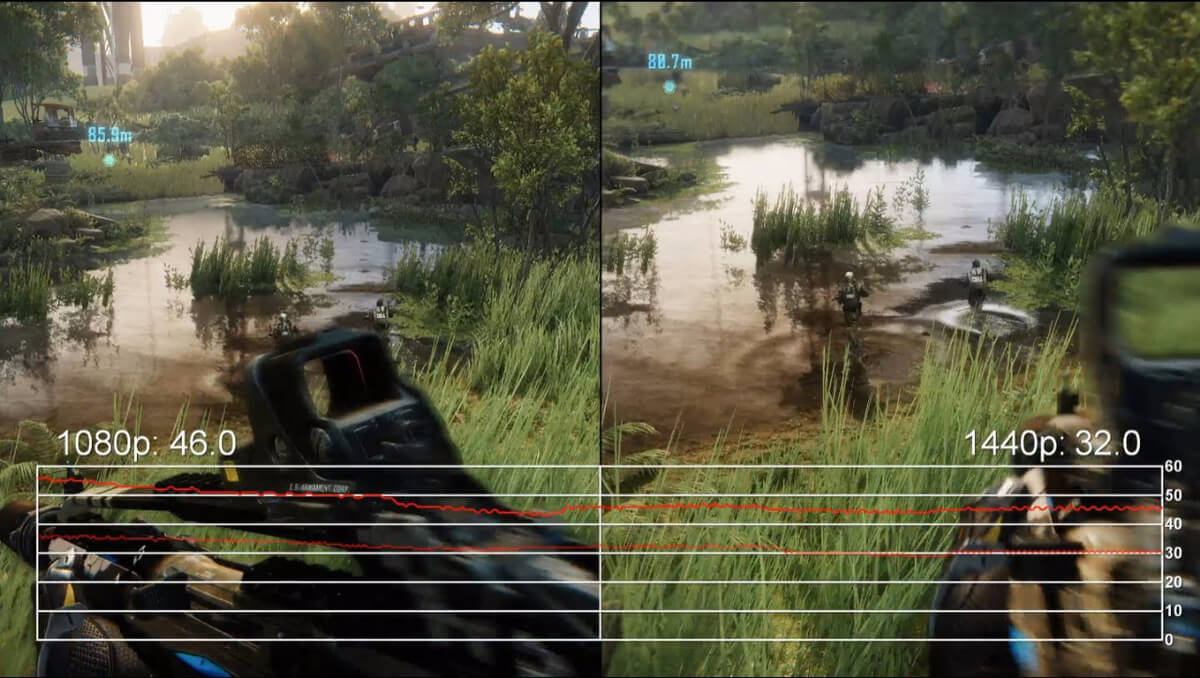So who does this matter to? Well, the average person probably doesn’t care, the people who do care range between computer hardware enthusiasts/gamers to prosumer/professionals. I think I technically fit all 4 of those categories, but the hardware enthusiast/gamer is probably the one I most resonate with. Gaming with a higher resolution screen is just better. Everything is sharper, you can pick up details of things that are farther away and you can see more fine detail when you are up close as well.
This sounds great, let’s just all upgrade to UHD monitors and everything will be great right? Well, the problem when it comes to gaming at a higher resolution (especially UHD) is that your computer now has to render/process an image that is 4x larger. This poses a problem as computer graphics companies NVidia/AMD have only recently been targeting that magic UHD resolution for their top-tier GPUs ("Graphics Processing Unit": the part that renders all the graphics/images that show up on your screen).
Now enter 1440p. This once professional-only resolution is now the perfect stepping-stone between HD and UHD. It’s even perfectly spaced halfway between HD and UHD as it is exactly 50% more width and 50% more height of 1080p, giving a nice 2x increase in pixels. With UHD displays hitting the scene it has also pushed 1440p displays way down in price making them much more affordable than going all the way to UHD.

See the framerate hit going from 1080p (46fps) to 1440p (32fps)
Now as I said this is, for the moment, only really going to be sought after by the aforementioned groups of people and won't really hit mass appeal for a while. But it's good to know what is coming down the road on the display front. You will probably see UHD pushed a lot more in the TV sector before you see it beginning to replace 1080P as the standard desktop computer resolution. But it's only a matter of time.
P.S I didn't mention Ultrawide monitors in this post but that may be a topic of another post in the future :)
